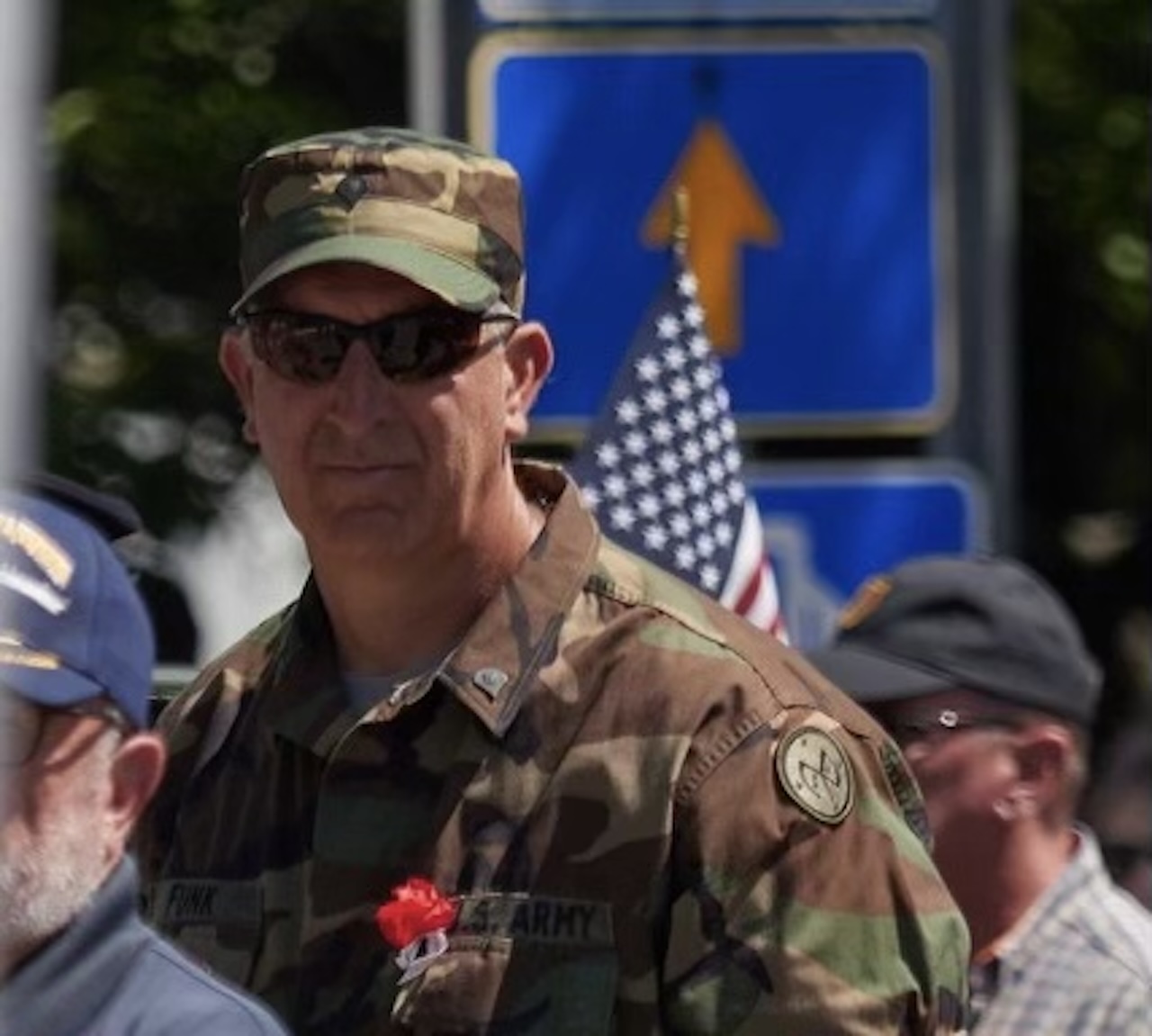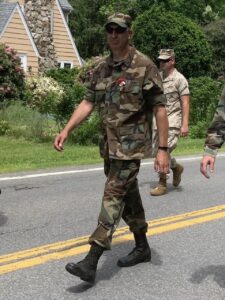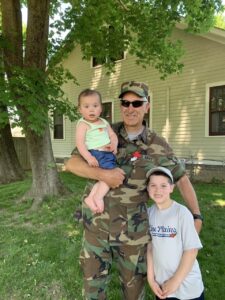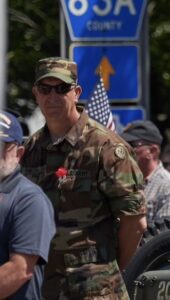Main Street News

Veteran Profile: Les Funk
In honor of Veteran’s Day on November 11, we are profiling veterans from around the area all month long to honor their service. This installment features Les Funk, an Army veteran.
Les Funk served in the U.S. Army for three years in active duty, and then in the National Guard for an additional three years.
Les, who is a physical education teacher and coach at Stissing Mountain Jr./Sr. High School, enlisted in June of 1986, right after graduating high school. “At that time, it was making a decision between college or doing something else, and I didn’t know what I wanted to do just yet,” he said.
Enlistment and service
Beyond serving his country, he was also interested in the GI Bill benefits since he knew he wanted to attend college following his service. The GI Bill offers qualifying veterans money to cover all or some of the costs for school or training following their military service.
He chose the Army because he felt that it was easier to access the Army recruiters and there were many people that he knew at the time that were also enlisting in the Army. Les’ father and uncle were both in the Navy, but he doesn’t like boats, so he said that branch of service was “out of the question.”
He attended basic training in Oklahoma for six months and then was deployed to Germany in December of 1986. “Back then, Germany was still divided into East and West. Looking at the map, we were only about 15 miles away from the wall,” he said.
When he entered service, he was placed in the artillery branch. As a forward observer, he was responsible for directing artillery and fire support onto a target.
“Luckily at that time, there wasn’t a war,” he said. “In World War II, the forward observers were right on the front lines and their life expectancy was not very long at all due to the dangerous positions that they were put in. When I was in, thankfully the equipment was more advanced. Now, I’m sure it’s even more so.”
 A lot of Les’ training was in the field, which meant that he would travel to the countryside in Germany for 30 to 60 days at a time and go through training that was as realistic as possible. “You showered maybe once a week and slept in tents,” he said. “They would have open fields set up with broken down tanks, and you treated it as though it were a real situation.”
A lot of Les’ training was in the field, which meant that he would travel to the countryside in Germany for 30 to 60 days at a time and go through training that was as realistic as possible. “You showered maybe once a week and slept in tents,” he said. “They would have open fields set up with broken down tanks, and you treated it as though it were a real situation.”
When he came home from service, he decided to join The National Guard, which is an element of the U.S. Military that serves community and country by responding to domestic emergencies, overseas combat missions, counterdrug efforts, reconstruction missions, and more.
“We went for two weeks in the summer for some basic training, radio operations, and updates to the latest technology. We were more or less on standby in case of an emergency,” Les said.
Memorable moments
One of the things that Les remembers most from his service is meeting people from all different origins. A few years ago, he ran into a man with whom he served in Germany.
“My wife was like ‘You guys picked up like the last time you saw each other was last week!’” he laughed. “Those kinds of connections and bonds don’t go away. It might have been thirty years since I’ve seen him, but we shared something as 19-year-old kids that most people will never have.”
connections and bonds don’t go away. It might have been thirty years since I’ve seen him, but we shared something as 19-year-old kids that most people will never have.”
Another thing he remembers is the kindness of the German people. “There were people that would bring you into their homes and treat you like you were a part of their family,” he explained. “I’d love to go back now and actually be able to take time to see all of the different sights.”
Impact and life after service
Les said that the military impacted him in that it gave him a sense of discipline that he didn’t have before. “It was the direction I needed at 19,” he said.
As soon as he returned home from service, he started attending Dutchess Community College. “I wasn’t a great high school student and I didn’t do as well as I could have. But when I started college, I was on honor roll and was all about that mindset of studying more, taking it more seriously, and being disciplined. I credit the military for giving me that sense of drive and direction.”
 Coming home wasn’t difficult for Les, as he was looking forward to seeing his friends and family again. He said that if he hadn’t been completely sure that he wanted to attend college and pursue a career in teaching, he would have reenlisted.
Coming home wasn’t difficult for Les, as he was looking forward to seeing his friends and family again. He said that if he hadn’t been completely sure that he wanted to attend college and pursue a career in teaching, he would have reenlisted.
“It wasn’t like, ‘I can’t wait to get out of here.’ I actually wouldn’t have minded staying, and if I had any doubts about what I wanted to do after, I would have. Once you do five or six years, putting in 20 years would’ve been no big deal.”
If there was anything Les wishes civilians understood about military service, it’s the sacrifice that all members of the service are making when they do their job, whether they’re serving in combat or working in an office.
“I think people take for granted that there are a lot of military people who stay in the field as a career and they’re missing holidays, their sons’ and daughters’ birthdays, and so many other important moments,” he said. “If there’s a conflict too and they’re gone for a year, that toll of knowing that you have a wife and a family at home that you’re leaving is a really big sacrifice. Obviously everyone has a job, but leaving your family like that is something that’s difficult to explain. You can’t get those years back.”
To learn more about the U.S. Army, visit their website here.


